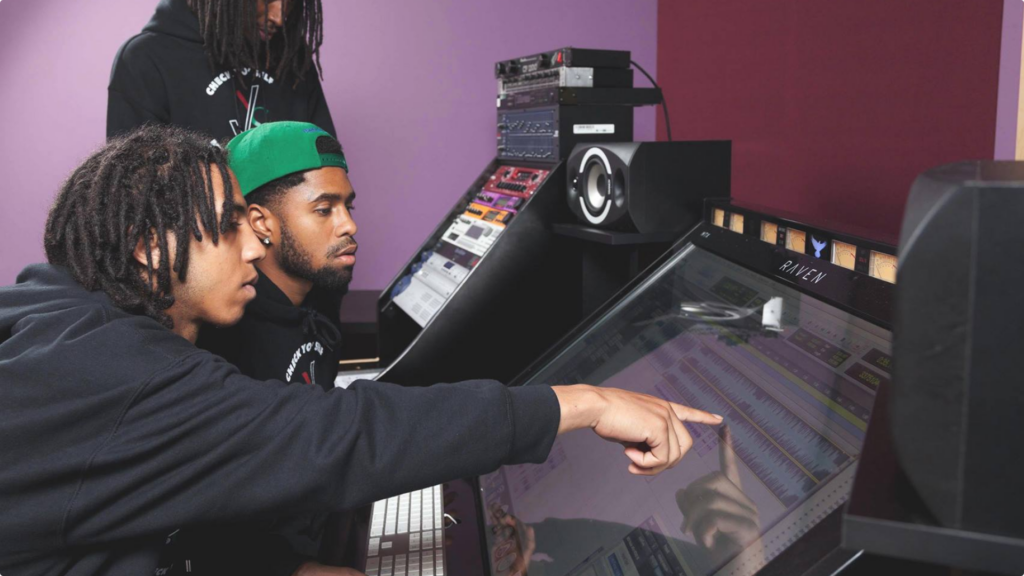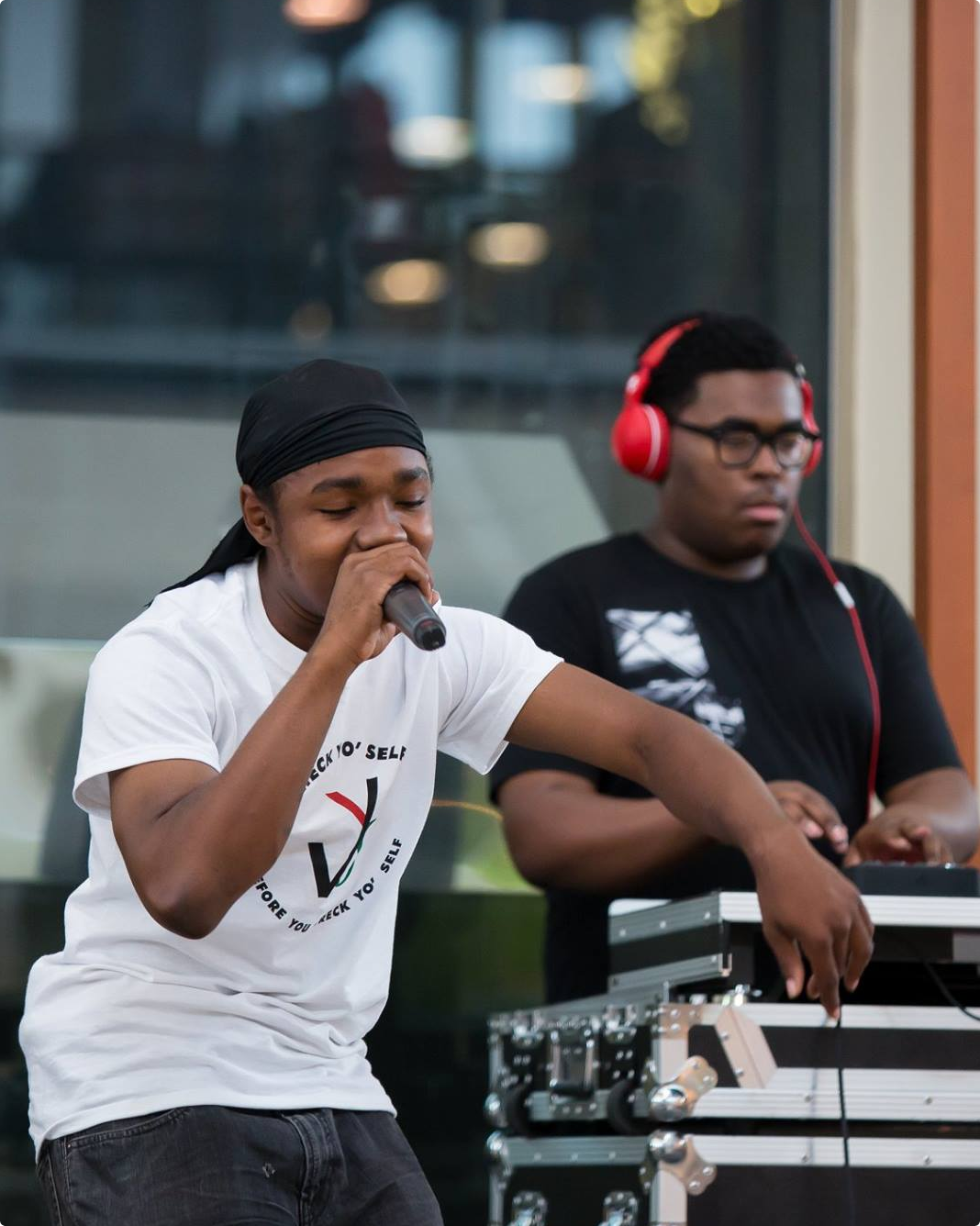
High School For The Recording Arts
St. Paul, MN
Students authoring their own lives
After a successful career as a recording artist, David “TC” Ellis opened his own recording studio and was surprised that talented teens were showing up rather than going to school. As a product of unique educational approaches himself, Ellis turned his studio into a school that offers learning through music and other creative endeavors. After 20 years in operation, High School for Recording Arts (HSRA) is a haven of life and learning for 350 students annually.
See for yourself

What it looks and feels like
Most HRSA students are considered at-risk—nearly all live at or below the poverty level, many are or have been homeless, and over half are criminal justice-involved. Their lives are transformed at HSRA because they don’t need to check their experiences and what matters to them at the door. Rather, each student works with their advising educator to set personalized goals, and their passions feed into their learning plan. Students bring their learning to life in HSRA’s state-of-the-art music production facilities. In one project, students selected an issue that negatively impacts their community to research and interpret through music, resulting in the album Money Train. It was produced by Another Level Records, HSRA’s student-operated record and production company. Through this combination of relevance, relationships, and opportunity, HSRA empowers students not only to earn a diploma, but to also author their own lives.
My learning at HSRA didn’t start or stop in the building. My entire life was honored as a learning experience. This philosophy piqued my engagement and opened my mind to see that I’m constantly learning, no matter where I am.
JASMINE, GRADUATE
THE IMPACT
90%
senior graduation rate over five years
100%
of HSRA graduates accepted into college with fully completed FAFSAs
60%
of students enrolled have already been in contact with the criminal justice system; that percentage drops to 11% by the time students graduate
MODEL HIGHLIGHTS
